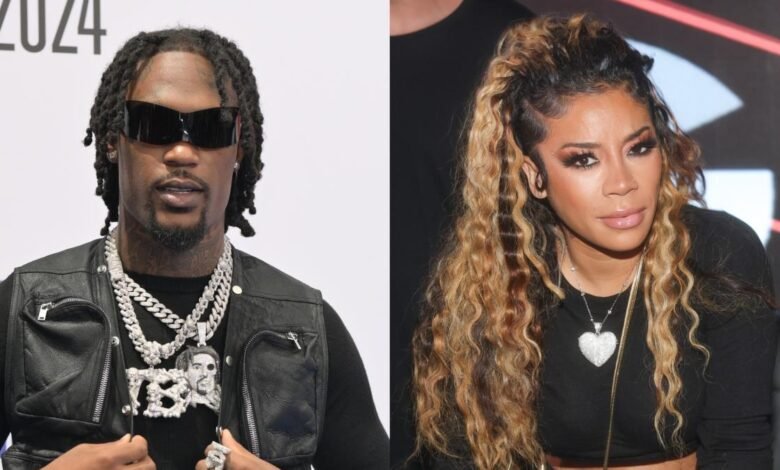Unveiling Hunxho Age: What You Need to Know

Introduction to Hunxho Age
Hunxho age refers to a cultural concept that is gaining traction in various communities, particularly concerning the understanding of identity, maturity, and the transitions individuals face as they age. This term encapsulates more than just numerical age; it embodies social, psychological, and even spiritual dimensions that are integral to a person’s development within their respective cultural contexts. The significance of Hunxho age is particularly pronounced in societies where aging is celebrated and viewed through lenses that emphasize wisdom and experience, rather than merely physical decrepitude.
The perception of Hunxho age varies widely among different groups. In some cultures, reaching a certain Hunxho age may be associated with significant life events or milestones, such as marriage, parenthood, or professional achievements. Such milestones signify an individual’s readiness to embrace responsibilities and engage more deeply with their community. Conversely, other communities may view hunxho age as an opportunity for reinvention or reflection, marking a phase where individuals can explore new interests and redefine their roles. This diverse perspective enriches the discourse surrounding age and encourages a more inclusive attitude towards aging.
The Origins of Hunxho Age
The concept of Hunxho age has deep historical roots that intertwine with various cultural narratives and societal transformations. To comprehend Hunxho age, it is essential to recognize how different civilizations have interpreted and valued age throughout history. In many cultures, age is not merely a measure of time; it is a symbol of wisdom, honor, and experience. The early understanding of age was often linked to agricultural cycles, where individuals were celebrated for their ability to contribute to the community’s survival and growth.
In folklore, age has been portrayed in myriad ways, emphasizing either the fragility of youth or the revered status of elders. For instance, ancient traditions revered older individuals as keepers of knowledge and wisdom, thus as society evolved, so did the respect afforded to people based on their age. The Hunxho age, in particular, reflects a unique amalgamation of these perceptions, drawing from various cultural influences that have shaped contemporary understanding. Historical texts and oral traditions often recount stories where individuals marked their Hunxho age as a rite of passage, signifying maturity and readiness to undertake responsibilities within the community.
Significant milestones throughout history further mark the evolution of age perceptions. For example, the advent of the industrial era changed the landscape of societal contributions, leading to a linear interpretation of age based on productivity rather than wisdom. This shift prompted a reevaluation of Hunxho age, allowing for the incorporation of new societal roles where younger generations assumed greater importance in driving innovation. The consequent blending of traditional views and modern perspectives forms a critical context for understanding Hunxho age today. By examining these historical narratives alongside contemporary societal values, one can appreciate the dynamic within which Hunxho age exists, highlighting its relevance in current discussions on age and identity.
Cultural Perspectives on Hunxho Age
The concept of Hunxho age varies significantly across different cultures, reflected in diverse beliefs, practices, and attitudes towards aging. In various societies, age is perceived not just as a measure of years lived, but also as an indicator of wisdom, experience, and social status. For instance, in many Indigenous cultures, elders are revered as custodians of knowledge and tradition. Their Hunxho age is celebrated, and they are often sought for advice and guidance, reinforcing the belief that with age comes spiritual elevation and cultural significance.
In contrast, Western cultures often adopt a more utilitarian view of age, where youth is idolized and associated with vitality and innovation. This perspective can marginalize older individuals, reducing their Hunxho age to a factor of efficiency and productivity. The notion of aging is frequently accompanied by a sense of loss—loss of youth, physical abilities, and social relevance. Nevertheless, an emerging trend in the West is fostering a more positive recognition of the Hunxho age, with campaigns that promote age inclusivity and the valuable contributions that older generations can provide.
In Asia, particularly in countries like Japan and China, the concept of age is intertwined with familial hierarchies and respect rituals. The Hunxho age is celebrated during specific festivals where older individuals receive honor and gratitude from younger family members. For example, the Japanese tradition of “respect for the aged day” reflects the deep cultural respect afforded to the elderly, reinforcing their esteemed status within the community.
Overall, the perspectives on Hunxho age reveal a rich tapestry of interpretations that influence how different cultures engage with aging. By examining these cultural lenses, it becomes clear that the understanding of age can shape societal values, impacting individuals’ lives in meaningful ways.
Hunxho Age in Modern Society
The concept of Hunxho age has evolved significantly in contemporary society, reflecting changing perceptions of youth, aging, and societal expectations. Traditionally, Hunxho age referred to a state of being linked to specific cultural milestones and life experiences. However, with rapid advancements in technology and shifts in lifestyle, this notion has become more fluid and complex. In modern contexts, individuals experience increased life expectancy coupled with a greater emphasis on personal fulfillment and self-expression, leading to a redefinition of both youth and aging.
One of the major influences on perceptions of Hunxho age is the impact of social media and digital platforms. Young individuals are continuously exposed to curated images and lifestyles that celebrate youthfulness and vitality. This exposure contributes to a desire for individuals of all ages to engage in activities traditionally associated with a younger demographic, challenging the conventional sensibility surrounding aging. Consequently, the Hunxho age is increasingly seen as a dynamic continuum rather than a fixed point, where age becomes less about numerical value and more about individual experiences and accomplishments.
Furthermore, contemporary culture places high importance on wellness and self-improvement. The pursuit of health, fitness, and aesthetic appeal has led many to defy the expectations of traditional aging. This trend underscores a collective desire to maintain a youthful spirit, melded with the wisdom accrued through life experiences. Discussions surrounding Hunxho age now encompass a broader dialogue on the intersection of aging and lifestyle choices, emphasizing that individuals can express their identities in ways that defy age-related stereotypes.
As society continues to adapt to these changes, it becomes essential to acknowledge the diverse spectrums of Hunxho age. The implications of this evolving concept indicate a shift toward more inclusive attitudes, allowing individuals to define their aging experience based on personal values and aspirations rather than societal expectations alone.
The Role of Media in Shaping Hunxho Age
Media plays a pivotal role in shaping societal perceptions and individual identities, particularly regarding the concept of Hunxho age. This term encapsulates a spectrum of experiences and characteristics associated with a specific demographic trend. Various forms of media, including films, television, social media, and literature, influence how ancillary groups perceive Hunxho age, either positively or negatively.
In film and television, representations of individuals experiencing Hunxho age often reflect prevailing stereotypes or cultural narratives. Some productions have provided nuanced portrayals that celebrate diversity and counteract misconceptions, fostering a broader understanding among audiences. These positive depictions can encourage acceptance and enhance the public’s comprehension of the challenges faced by these individuals. Conversely, negative representations can perpetuate stereotypes, leading to further marginalization and stigmatization of those associated with Hunxho age.
The advent of social media has dramatically altered how young individuals share their narratives and construct their identities. Platforms such as Instagram, TikTok, and Twitter enable users to express their experiences related to Hunxho age in real-time, cultivating communities supportive of diverse identities. However, social media can also contribute to unrealistic expectations and harmful comparisons, potentially amplifying insecurities among users. The duality of social media as a tool for empowerment and a source of pressure highlights the complexities surrounding the Hunxho age discourse.
Literature, too, serves as a crucial medium for exploring the themes associated with Hunxho age. Authors often articulate personal stories, cultural conflicts, and resolutions that resonate deeply with readers. Through these narratives, literature can challenge societal norms and offer fresh insights into the experiences of individuals within this demographic. Ultimately, the intricate interplay of various forms of media continues to mold the public’s understanding and representation of Hunxho age, illustrating the transformative power of cultural narratives in modern society.
Personal Narratives: Stories Around Hunxho Age
The concept of hunxho age resonates deeply with individuals from varying backgrounds, shaping their identities and life trajectories. One individual, Maria, shared her experience of approaching her hunxho age, a period she described as both daunting and liberating. As she transitioned into this new phase of life, Maria found herself questioning societal standards of success and happiness. She reflected on how notions of age influenced her career decisions, leading her to pursue a long-held passion for painting. This decision not only revitalized her spirit but also established a more profound connection to her self-identity beyond just her numerical age.
Similarly, John, who recently celebrated his hunxho age milestone, recounted his journey through self-discovery. He spoke candidly about the societal expectations tied to this age, and how they often weigh heavily on individuals. John emphasized the importance of embracing personal experiences and choices, which enabled him to redefine what it meant to be successful at his age. He pursued a passion for hiking, which has fostered a sense of community and personal fulfillment, emphasizing that the hunxho age is not merely about reflecting on past accomplishments, but also about celebrating ongoing adventures.
Through these stories, we see that the hunxho age serves as a transformative touchpoint. Individuals are prompted to reassess their values and aspirations, freeing themselves from restrictive societal pressures. Whether through creative endeavors or newfound interests, each narrative encapsulates a unique journey, illustrating how age impacts one’s life trajectory in both profound and relatable ways. These personal experiences enrich our understanding of how age continues to influence individual narratives and the broader tapestry of human life.
Challenges and Misconceptions of Hunxho Age
The concept of hunxho age often encompasses various stereotypes and misconceptions that can significantly impact individuals across different age groups. One prevalent misconception is the notion that younger individuals are less capable in their professional or personal lives compared to their older counterparts. This stereotype fosters an environment of ageism, where individuals may find themselves judged based on their age rather than their skills or experiences. Such perceptions can be particularly challenging for younger adults, who may feel undermined in workplaces dominated by older generations.
Conversely, older individuals similarly face challenges associated with hunxho age. The societal belief that older adults are less adaptable or less innovative can lead to exclusion from certain opportunities. This presence of ageism not only limits their professional engagements but also promotes feelings of isolation and reduce their overall mental well-being. Older individuals may internalize these stereotypes, leading to a diminished self-image and decreased motivations, which can exacerbate mental health challenges.
In addition to these societal pressures, individuals of all ages frequently confront unrealistic expectations regarding achievement and productivity tied to their specific hunxho age. For example, young adults often face pressure to achieve significant milestones rapidly, such as landing a high-profile job or starting a family. On the other hand, older individuals may feel compelled to justify their continued presence in the workforce or social spaces, fearing that they will be outpaced by younger generations.
Overall, the implications of these misconceptions extend beyond mere stereotypes; they affect the mental health and societal engagement of individuals throughout various hunxho age brackets. Addressing these perceptions is crucial for fostering a more inclusive environment that values individuals based on their unique contributions rather than their numerical age. By challenging these stereotypes, society can work towards improving the overall emotional and psychological well-being of all age groups.
Embracing Hunxho Age: Benefits and Positive Outlook
As individuals progress through various stages of life, embracing the hunxho age can lead to numerous benefits that enrich both personal experiences and communal living. Contrary to prevailing stereotypes that associate aging with decline, the later years of life often bring a wealth of wisdom, emotional intelligence, and self-awareness that can profoundly impact one’s quality of life.
First and foremost, reaching hunxho age allows individuals to cultivate an expansive understanding of life based on experiences that younger generations may not yet have encountered. This intrinsic understanding fosters empathy, patience, and kindness—qualities that are essential for nurturing relationships and building supportive communities. As individuals accept their age, they become more capable of imparting knowledge and guidance, thereby playing an instrumental role in mentorship and community development.
Moreover, embracing hunxho age leads to personal growth in several dimensions. With time comes the opportunity to reflect on past lessons and achievements, turning them into sources of motivation rather than regrets. This shift in perspective can promote a fulfilling lifestyle characterized by new interests, hobbies, and friendships that enhance overall well-being. Many older adults find themselves engaging in enriching activities that they had previously postponed, leading to an invigorating sense of purpose.
Furthermore, fostering a positive narrative around hunxho age contributes to a culture of inclusivity, where all age groups are respected and valued. Society benefits when individuals support one another, regardless of age, recognizing the contributions that diverse perspectives bring to the table. By building intergenerational connections, we can enhance social cohesion and dismantle age-related stigmas.
In essence, embracing hunxho age opens pathways to a richer, more meaningful existence, benefiting both individuals and society as a whole.
Conclusion: Reflecting on Hunxho Age
The concept of Hunxho age encompasses more than just the numerical value assigned to an individual’s years; it involves a deeper understanding of the multifaceted nature of aging and the experiences that shape a person. Throughout this article, we have delved into various aspects of Hunxho age, examining how it varies across cultures, the psychological dimensions of aging, and the societal implications that accompany different age groups. Recognizing Hunxho age as a holistic experience allows us to appreciate not only the wisdom and knowledge that come with maturity but also the vibrancy and potential that younger individuals possess.
As we reflect on the significance of Hunxho age, it becomes evident that societal perceptions often influence how we value different stages of life. In many cultures, older individuals are revered for their experiences, while the youth are celebrated for their innovation and energy. However, bridging this gap and fostering a culture of inclusivity is essential. By understanding and discussing Hunxho age in a balanced manner, we can encourage a more accepting environment where all age groups are acknowledged and appreciated for their contributions.
You May Also Read This Digitalcompound.



